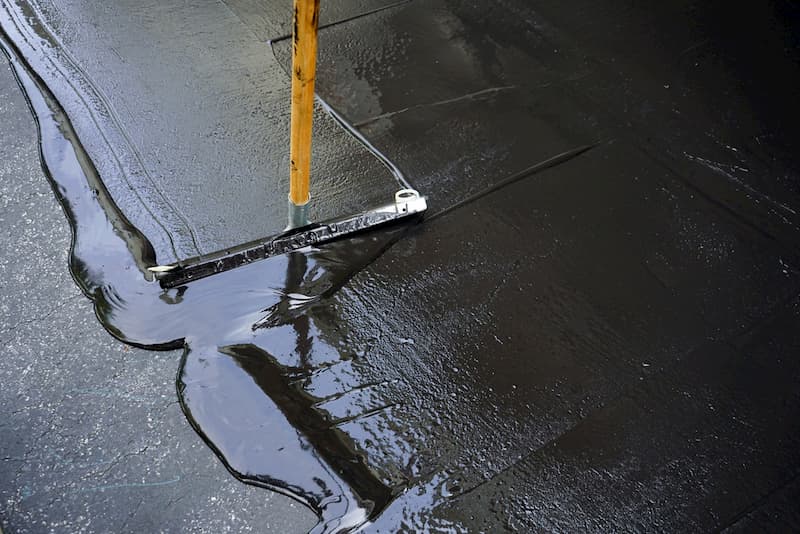Cold Mix Asphalt Vs. Hot Mix Asphalt: Which Is Right for You?

Composition Differences
Cold mix and hot mix asphalts differ considerably in their make-up, with distinct qualities that impact their efficiency and applications. Cold mix asphalt is created by emulsifying the asphalt binder with water and an emulsifying agent before mixing it with accumulation. This approach allows for the asphalt to be practical at lower temperatures, making it perfect for momentary fixings and for use in cooler climate condition. Hot mix asphalt, on the other hand, is produced at high temperatures, typically in between 300-350 ° F, which assists to achieve better compaction and a more sturdy end product. The hot mix asphalt manufacturing procedure involves heating the accumulation and asphalt binder separately before incorporating them at the asphalt plant.
Moreover, cool mix asphalt has a tendency to be much less dense and a lot more adaptable than warm mix asphalt. This adaptability makes it much better fit for locations with higher degrees of activity, such as driveways or roads with hefty web traffic. In comparison, warm mix asphalt is known for its high toughness and resistance to rutting and cracking, making it a preferred choice for highways and high-traffic roads where longevity is important.
Installation Refine Variations
The process of mounting chilly mix and hot mix asphalt displays remarkable variances in their treatments and needs. In comparison, warm mix asphalt demands a much more elaborate installment process. Due to the heating needs, warm mix asphalt installations are usually lugged out by professionals with specialized equipment, guaranteeing a much more structurally audio and long-term result.
Sturdiness and Longevity Factors
When thinking about asphalt options, sturdiness and longevity are vital elements to assess for long lasting sidewalk performance. Hot mix asphalt (HMA) is known for its remarkable resilience and longevity.
In regards to durability, HMA normally surpasses CMA as a result of its remarkable toughness and resistance buildings. HMA sidewalks have a longer life span, calling for less regular repair work and upkeep, which can translate to cost savings in the lengthy run. In addition, HMA sidewalks are much more conveniently personalized to meet certain task demands, further enhancing their resilience.
Price Considerations
Thinking about the financial effects is an important element when evaluating the selection in between warm mix asphalt (HMA) and cool mix asphalt (CMA) for sidewalk tasks. While the initial cost of warm mix asphalt is typically greater than that of chilly mix asphalt, HMA frequently gives a more affordable solution in the long run as a result of its remarkable sturdiness and long life. HMA index is recognized for its capacity to stand up to rush hour loads and rough climate condition, reducing the demand for constant repairs and maintenance. On the various other hand, cool mix asphalt is much more inexpensive ahead of time yet might require even more constant patching and resurfacing, bring about higher maintenance costs in time.
In addition to material costs, it's crucial to consider the costs connected with installation and look at here now maintenance when contrasting HMA and CMA. Inevitably, the choice in between HMA and CMA need to take right into account not simply the first cost however likewise the long-lasting monetary effects to figure out the most affordable alternative for the certain pavement task.
Environmental Influence Comparison
Contrast of the ecological influences between warm mix asphalt (HMA) and cool mix asphalt (CMA) reveals distinct distinctions in sustainability practices. HMA production calls for high temperatures, leading to raised power usage and greenhouse gas emissions.
Furthermore, the usage of CMA typically entails recycling existing asphalt pavement, advertising resource conservation and minimizing the quantity of waste sent out to landfills. This reusing aspect further enhances the sustainability of CMA contrasted to HMA. Overall, when taking into consideration the environmental effect, CMA arises as a more environmentally sustainable selection because of its reduced energy demands, minimized emissions, and the possibility for recycling existing products. By choosing CMA over HMA, roadway building tasks can contribute positively to ecological preservation initiatives.
Conclusion
Finally, the selection between cool mix asphalt (CMA) and hot mix asphalt (HMA) depends upon numerous variables such as make-up, setup process, resilience, durability, expense, and ecological impact. angle parking. While CMA supplies a cost-effective and fast remedy for minor repair work, HMA guarantees superior resilience and durability for rush hour areas. Take into consideration these elements carefully to figure out which kind of asphalt is the appropriate option for your paving requires

Thinking about the financial implications is a critical facet when assessing the option between hot mix asphalt (HMA) and cool mix asphalt (CMA) for sidewalk tasks. While the preliminary price of hot mix asphalt is normally greater than that of cold mix asphalt, HMA frequently provides a much more affordable service in the long run due to its exceptional resilience and long life. cold mix Our site asphalt.Comparison of the environmental influences between hot mix asphalt (HMA) and chilly mix asphalt (CMA) reveals distinctive differences in sustainability methods.In conclusion, the choice between cold mix asphalt (CMA) and hot mix asphalt (HMA) depends on numerous factors such as make-up, installment procedure, sturdiness, longevity, expense, and ecological impact